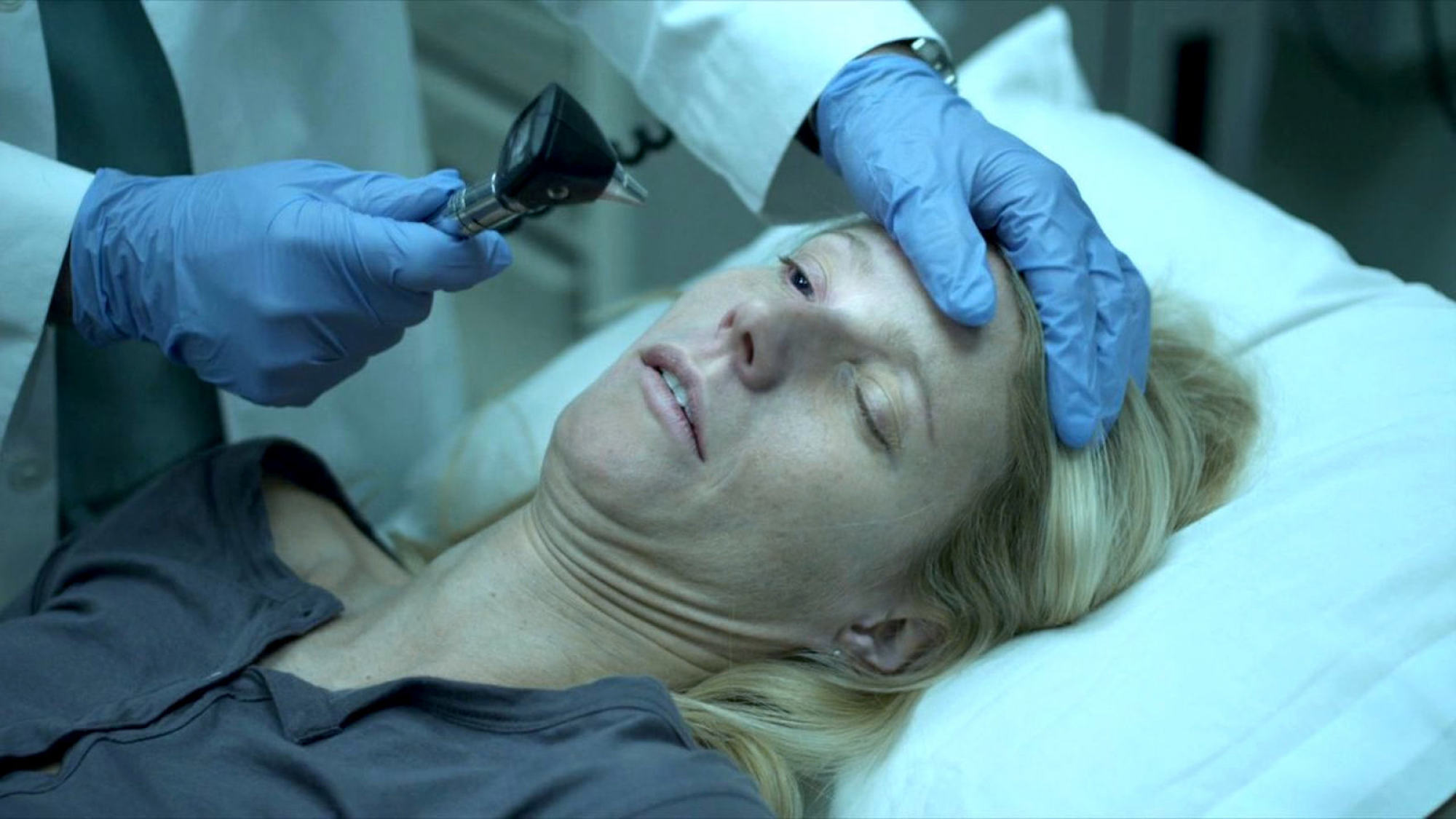Hmmmmnnn
scmp.com
Larry Brilliant, eradicator of smallpox, proposes ‘ring vaccination’ to combat coronavirus, says herd immunity is not achievable
- Leading epidemiologist Larry Brilliant calls mass vaccination to achieve herd immunity ‘just a dream’, saying it didn’t work against smallpox, Ebola or polio
- The former Google vice-president says technology is key, with various means of surveillance the most effective way to identify and isolate asymptomatic cases
One of the world’s best known epidemiologists has a stark warning: mass vaccination will not stop a virus, and achieving herd immunity by giving jabs to billions of people is just a dream.
Dr Larry Brilliant should know. He was at the forefront of the campaign that eradicated smallpox – the only disease the human race has managed to eliminate so far – and he wants health authorities to change tack and try a time-tested method known as “ring vaccination” to contain Covid-19, a process that involves using available jabs more judiciously.
“Mass vaccination never worked,” he says. “Not against smallpox, not against Ebola, not against polio. It is just a dream.”
The 2011 film, Contagion, was much talked about in the early days of the pandemic as it seemed to predict, almost a decade before the Covid-19 outbreak, the emergence of a killer virus that spreads through the air and leads to millions of deaths. Screenwriter Scott Burns got the idea for the movie from a Ted Talk presentation by Brilliant, who later worked as an expert consultant on the film. CNN classified Contagion as “part fantasy, part reality and totally possible”.
Back in the 1960s, while his fellow medical graduates donned white coats and gravitated towards hospital wards or research labs, Brilliant, having raised money by putting on a Pink Floyd and Rod Stewart concert, teamed up with a group of hippies and set off on in a psychedelically painted bus from London to India, snaking his way through Iran, Afghanistan and Pakistan.

Gwyneth Paltrow in the 2011 film Contagion. The movie’s screenwriter, Scott Burns, was inspired by a Ted Talk given by Dr Larry Brilliant. Photo: Warner Bros
But once across the Hindu Kush, a guru whom Brilliant had gone to meet – Neem Karoli Baba, or maharaji to him – set him on a path not further into the Himalayas, but to New Delhi, to join the battle against smallpox.
Brilliant does not think of his journey as being unusual, despite it including his striking up of a friendship with Steve Jobs, while both of them were roaming barefoot in search of spiritual guidance, that lasted until the death of the Apple founder in 2011.
“It was a typical career path of the 60s. I don’t know why people make such a fuss about that,” he said dismissively during an interview in September 2020.
Going by his 2016 book, Sometimes Brilliant, one could easily dispute that much of anything about Brilliant is typical. It is a vivid account of his trials and tribulations in India, fighting to root out the killer disease that had plagued the planet for thousands of years.
A vaccine for smallpox had been developed in 1798, but India continued to see mass outbreaks for some two centuries until the World Health Organisation started an eradication campaign in the 1970s. Brilliant, not trained as an epidemiologist, soon became the campaign’s poster boy and, along with his colleagues – comprising local and foreign health experts, business houses, religious leaders and volunteers – pulled off one of the most impressive victories medical science had ever achieved.

A child afflicted with smallpox at the Infectious Diseases Hospital in Madras, India, in the 1970s. Photo: Getty Images
The time it took vaccine shipments to arrive in rural areas with no proper storage facilities required a way to administer the jabs effectively in targeted villages to contain the outbreaks there. They chose to inoculate people who had come into contact with the infected and their contacts, rather than everyone in the village.
The credit for this procedure, which proved successful and came to be known as “ring vaccination”, goes to Brilliant’s colleague William Foege, who later went on to head the United States’ Centres for Disease Control and Prevention (CDC).
In his book, House on Fire: The Fight to Eradicate Smallpox (2011), Foege writes that it was a tactic fashioned out of experience from his days fighting forest fires. As water to douse quick-spreading flames was difficult to get, they chopped down trees in the path of the fire to create a fire trench that blocked the flames from spreading. (The ring vaccination approach was later used effectively against polio and Ebola.)
“But we never used the term ‘ring vaccination’; it’s a terrible name,” laughs Brilliant. “We used to call it selective epidemiological control, and in India, we called it surveillance and containment. But I saw it take out a disease that had started perhaps 10,000 years ago.”
Recently, Brilliant co-wrote an article in Foreign Affairs calling on health authorities to consider ring vaccination, saying the delay in distributing the jabs to all corners of the world is granting the coronavirus a free ride in many countries, thereby increasing the chances of more variants emerging.
But other health experts see a problem with this argument. Their concern is that the Sars-CoV-2 virus is different from smallpox and Ebola. People infected with smallpox or Ebola showed visible symptoms that made it easy to identify and isolate. In the case of Covid-19, about 40 per cent of those infected are asymptomatic, making it difficult to employ the ring vaccination method.
Clinical microbiologist Dr Siddharth Sridhar, of Hong Kong University, is doubtful the ring vaccination approach will work. “The incubation period of the infection is too short, the vaccines take time to mount an effective response,” he writes via email, saying the only way out of this crisis is the equitable distribution of vaccines.

Clinical microbiologist Dr Siddharth Sridhar, of Hong Kong University. Photo: Twitter / @sid8998
Brilliant is aware of these difficulties, and says that until three months ago he thought the asymptomatic nature of some Covid-19 cases was an insurmountable problem. However, studies and reports of different surveillance methods used in various countries have convinced him that ring vaccination could be used effectively in conjunction with other methods.
Not all surveillance methods work in all places, he admits. For example, making house calls in places with a lot of guns is not going to work. “You may know, one of the countries [is where] I am calling you from,” he says. “You can’t make house calls in the United States.”
As a former vice-president of Google, Brilliant sees technology as a critical factor in keeping track of the Covid-19 outbreaks, but there is no one-size-fits-all solution.
Sewage testing can detect the virus, whether from symptomatic or asymptomatic cases, says Brilliant. And there are other approaches he feels need to be sniffed out. And “it’s not just [using] dogs”, he says. Researchers at the London School of Hygiene & Tropical Medicine were excited about developing a digital sniffer that can be used to detect “Covid odours”.

Tiger, a Labrador retriever, sits in front of a sample of human sweat after detecting Covid-19 at a mobile canine unit in Bangkok, Thailand, on June 17, 2021. Photo: AP
“It’s the idea that there is an odour, aromatic means created when someone has Covid,” says Brilliant. “I remain sceptical, but you know, we have to try everything.
“You don’t go into a battle with weapons you wish you had; you go in with what you have [ …] If we’re serious about this, and we have to be, we have to not pretend that we’re going to be able to do it through mass vaccination. It never worked against smallpox, didn’t work against Ebola, and didn’t work against polio.
“You can’t get to herd immunity when you have got a disease like the Delta variant, which is probably double or triple as transmissible as the original Covid.
“It’s funny that people have named this process ‘ring vaccination’. [‘I hate that term,’ he reiterates] I think the vaccination was less than 15 per cent of what we did. Eighty per cent was surveillance.”
Indian smallpox eradication involved 20 surveillance systems, including investigating every rumour from remote villages, which often involved white-knuckle drives and hostile receptions.
Brilliant recalls a top WHO official being unconvinced about the campaign against smallpox in India, even going so far as to say he would eat the tyre of a Land Rover if the disease was fully rooted out.
“The happiest day of my 10 years in India was when we shipped a Land Rover tyre to him and asked whether he wanted mustard or ketchup with it.” |




